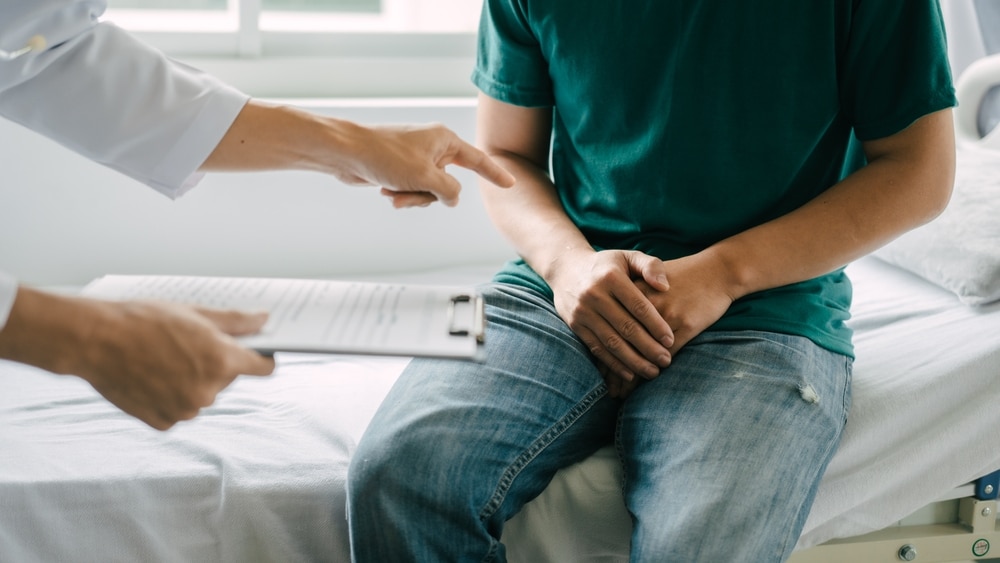The health of men is an important but often overlooked topic, especially in the context of prevention and early detection. Unfortunately, men are more likely than women to experience poor physical and mental health, neglected preventative screenings, greater risk factors for disease (e.g., smoking), and premature death due to delayed diagnosis or treatment.
In order to address this issue, it’s important for us all to familiarize ourselves with some basic information about common male-specific health risks so that we can learn better strategies for prevention and begin seeking early medical interventions when needed. Let’s explore key facts on understanding common men’s health issues related to preventive care and early detection while examining potential warning signs that should not be ignored or brushed off as mere symptoms of aging.
What Are Some of the Most Common Issues in Men’s Health?
At Lively Wellness & Aesthetics in Odessa, TX, we understand that men’s health encompasses a unique set of concerns and challenges. While the journey to optimal well-being is universal, men often face specific health issues that demand specialized attention. Here are some of the most common health issues that men face:
Erectile Dysfunction (ED)
Erectile dysfunction, commonly referred to as ED, is a prevalent health issue many men face, particularly as they age. ED is the consistent inability to achieve or maintain an erection sufficient for sexual activity. While occasional difficulties can be normal, frequent ED can signify more severe health problems and significantly impact a man’s self-esteem and relationships. Multiple factors, ranging from cardiovascular diseases, diabetes, and hormonal imbalances to psychological factors such as stress, anxiety, or depression, can contribute to its onset.
Osteoporosis
Often considered a women’s health concern, osteoporosis is also a significant issue in men’s health, though it’s less commonly acknowledged. Osteoporosis is when bones become fragile and more susceptible to fractures due to decreased bone mass and density. While women experience a rapid decline in bone density during menopause, men lose bone mass more slowly. However, by age 65 or 70, men and women lose bone mass at the same rate. Several factors can increase a man’s risk, including chronic medical conditions, certain medications, lifestyle choices, and low testosterone levels.
Testosterone Decline
Testosterone is a key male sex hormone responsible for the development of male reproductive tissues, promoting muscle and bone mass, and influencing fat distribution. As men age, they naturally experience a gradual decline in testosterone levels, typically starting around middle age. This decline can lead to various symptoms, such as decreased libido, fatigue, depression, irritability, cognitive difficulties, and reduced muscle mass.
Male Pattern Baldness
Male Pattern Baldness, scientifically known as androgenic alopecia, is the most common type of hair loss in men. A combination of genetics and male hormones is usually to blame. It generally follows a pattern of receding hairline followed by thinning of hair on the crown and temples.
How Can You Prevent, Treat, and Detect These Issues?
We recognize the unique health challenges that men face throughout their lives. From maintaining optimal physical fitness to navigating the intricate facets of sexual and prostate health, prevention, detection, and treatment are paramount. Here are some of the ways we can prevent, treat, and detect these issues:
Erectile Dysfunction
Erectile dysfunction, a concern that can deeply impact a man’s well-being and self-esteem, can be effectively addressed through innovative treatments like the P-Shot and acoustic wave therapy. The P-Shot uses platelet-rich plasma to enhance and rejuvenate erectile function, while acoustic wave therapy employs sound waves to improve blood flow, both resulting in enhanced performance and revitalization.
Male Pattern Baldness
For individuals grappling with male pattern baldness, the Fotona Laser offers a modern solution. This state-of-the-art hair restoration technique uses laser technology to stimulate hair growth, showing significant results for many men who want to regain their confidence and youthful appearance.
Osteoporosis
Bioidentical hormone replacement therapy has emerged as a potent tool to combat this condition. This therapy can effectively enhance bone strength and resilience by addressing hormonal imbalances that contribute to bone loss.
Testosterone Decline
A natural part of the aging process for many men is the decline in testosterone levels, which can lead to symptoms such as fatigue, mood changes, decreased libido, and muscle loss. Fortunately, there are proactive steps one can take to address this. Bioidentical hormone replacement therapy stands out as a promising solution. This innovative treatment introduces hormones that are molecularly identical to those naturally produced by the body. By restoring hormonal balance, this therapy can mitigate the symptoms of testosterone decline, enhancing overall vitality and well-being.
To effectively combat these health challenges, early detection is crucial. Regular medical check-ups, combined with open communication about symptoms or changes, allow for the timely identification and treatment of these conditions. With the advancements in medical technology and treatments at Lively Wellness & Aesthetics in Odessa, TX, men now have many solutions to lead a healthier, more fulfilling life.
Take Control of Your Health With Lively Wellness & Aesthetics in Odessa, TX
At Lively Wellness & Aesthetics in Odessa, TX, we understand the importance of addressing men’s health concerns. We offer a range of treatments that cater specifically to men’s needs, ensuring that each individual receives the care and attention required to achieve optimal health. From preventative measures to diagnostic tests and treatments, our services are designed to help men of all ages take control of their physical and mental well-being.
For more information on our treatments and to schedule a consultation with us, please contact us online or call us at (432) 580-9168.


